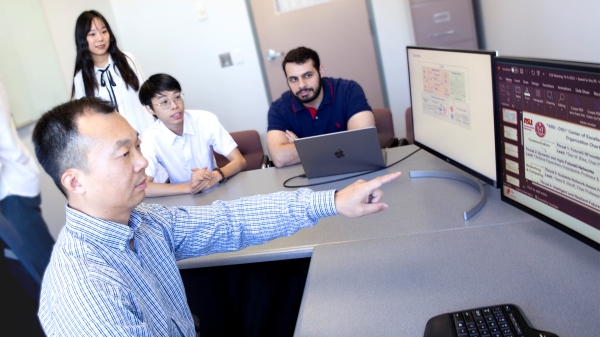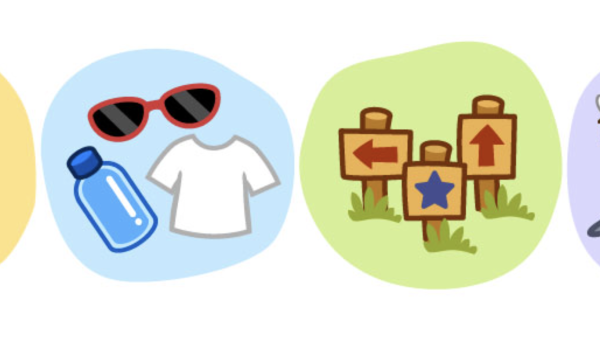ASU wins grant to establish interdisciplinary training program to fight the opioid epidemic

The opioid epidemic has been a national public health crisis since 2017, yet most providers are not equipped to handle the scope of the problem. Photo: Haley Lawrence from Unsplash.com
Each day, 130 Americans die from opioid or prescription drug abuse. In Arizona, nearly 15% of adults know someone who died from a prescription painkiller overdose, according to the Morrison Institute at Arizona State University.
The opioid epidemic has been a national public health crisis since 2017, yet most providers are not equipped to handle the scope of the problem.
“There is such a gap between the science of the field and what we know is effective to what is actually being done in the community. We need to disseminate science-based treatment to everyone who is coming into contact with addiction,” said Matthew Meier, associate director of the ASU Clinical Psychology Center and director of the Addiction and Substance-use Related Disorders Graduate Certificate.
To close this gap, ASU recently launched the Interdisciplinary Training Academy for Integrated Substance/Opioid-Use Disorder, Prevention, and Healthcare with a grant from the Health Resources and Services Administration, part of the U.S. Department of Health and Human Services. The grant will fund student training at ASU, allowing them to experience how the opioid epidemic is currently being addressed and better preparing them to make a difference in the future.
“Addiction has to be treated using a holistic approach — just providing therapy and teaching coping skills isn’t enough if someone is homeless, or dealing with pain. It really has to be approached from every possible angle,” Meier said. “What makes the Interdisciplinary Training Academy for Integrated Substance/Opioid-Use Disorder, Prevention, and Healthcare program so unique is that we are looking at opioid addiction from the perspective of social work, psychology and nursing to address each of those aspects of addiction.”
The initiative is multidisciplinary and will be led by Natasha Mendoza, director of the Center for Applied Behavioral Health Policy, along with Cady Berkel, associate research professor in the REACH Institute. Colleen Cordes, clinical associate professor and director of the Doctor of Behavioral Health Program, Wendy Wolfersteig, director of evaluation and partner contracts at the Southwest Interdisciplinary Research Center, Judy Krysik, director of ASU’s Center for Child Well-Being, and Bonnie Ervin, instructor in the School of Social Work, will also oversee student training.
“We were faced with the question, what does a behavioral health provider need to know to really impact and address the opioid epidemic?” Mendoza said. “The truth of the matter is they need to know so much more than they currently do.”
In addressing the opioid epidemic, each community agency focuses on a different problem and solution, like how different individuals navigate recovery, treatment options or policy.
“The perfect behavioral health provider is someone who has experience across all relevant areas,” Mendoza said.
The ASU training program spans prevention and treatment with the goal of improving how different disciplines work together.
This new model of addressing the problems associated with addiction includes solving environmental and institutional problems.
Over three years, the HRSA grant provides a full year of training for ASU doctoral students in psychiatric nursing and master's degree students in social work programs. The grant also funds psychology postdoctoral fellows. The long-term goal of the program is to set the national standard for training students by developing a curriculum to share with other universities and training programs.
“Our systems in health care and support for individuals had been siloed in the past, so having this series of experiences will allow our students to see the full breadth of resources, gaps and duplications. It really paints a more accurate picture for them,” Berkel said.
The training program includes 30 weeks of field experience. The students will spend two-week rotations at nine participating community agencies like the Recovery Empowerment Network, the ASU Clinical Psychology Center and Shot in the Dark, gaining broad experience in treating addiction and associated problems.
Students wanting additional training in the treatment of substance use disorders can also complete ASU’s online Addiction and Substance-use Related Disorders graduate certificate, which provides the foundational knowledge required to become a licensed addiction counselor in Arizona and most other states.
“Our goal is for ASU to be a national leader in training students and professionals to help solve the opioid crisis,” Meier said.
More Science and technology

Advanced packaging the next big thing in semiconductors — and no, we're not talking about boxes
Microchips are hot. The tiny bits of silicon are integral to 21st-century life because they power the smartphones we rely on,…

Securing the wireless spectrum
The number of devices using wireless communications networks for telephone calls, texting, data and more has grown from 336…

New interactive game educates children on heat safety
Ask A Biologist, a long-running K–12 educational outreach effort by the School of Life Sciences at Arizona State University, has…